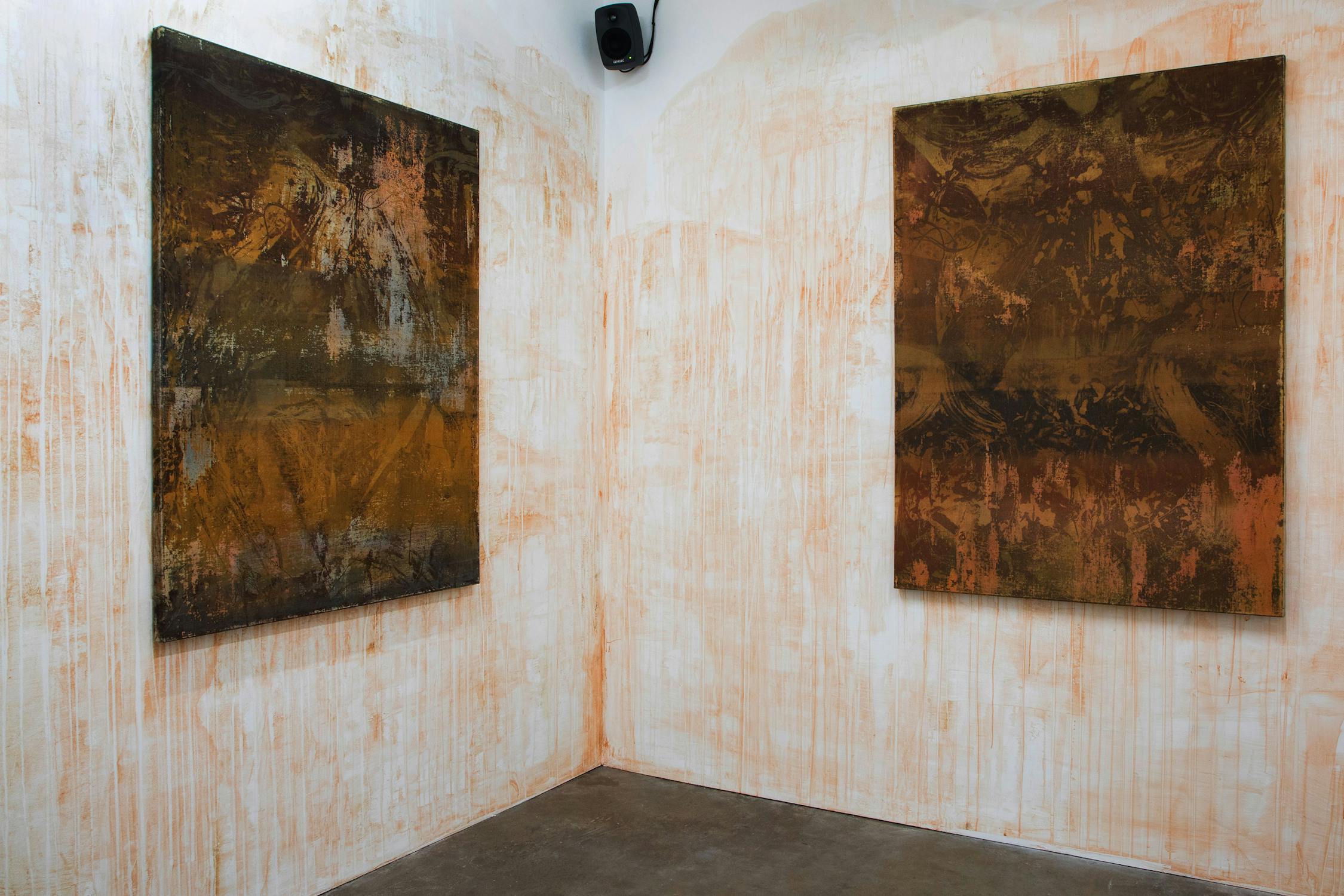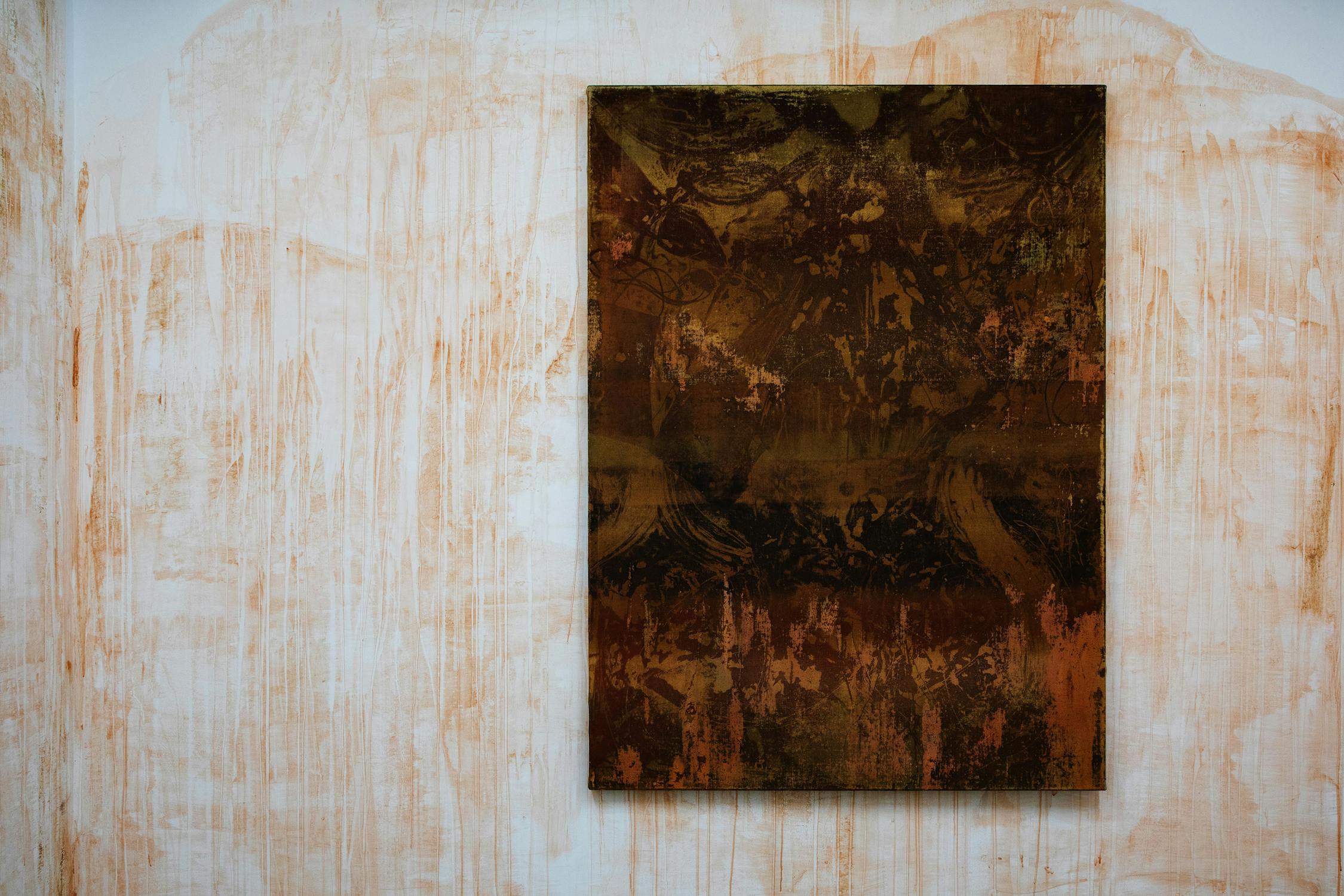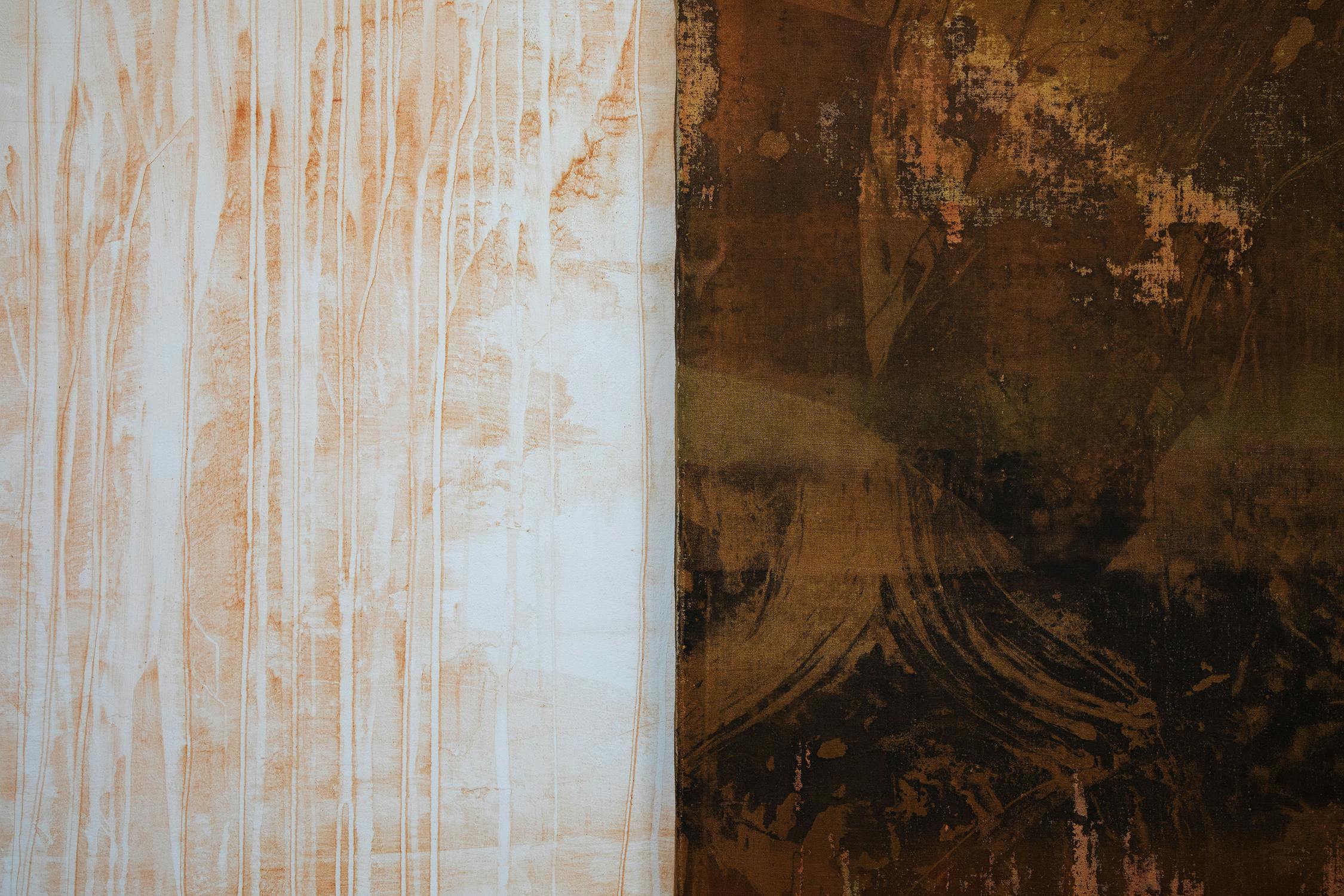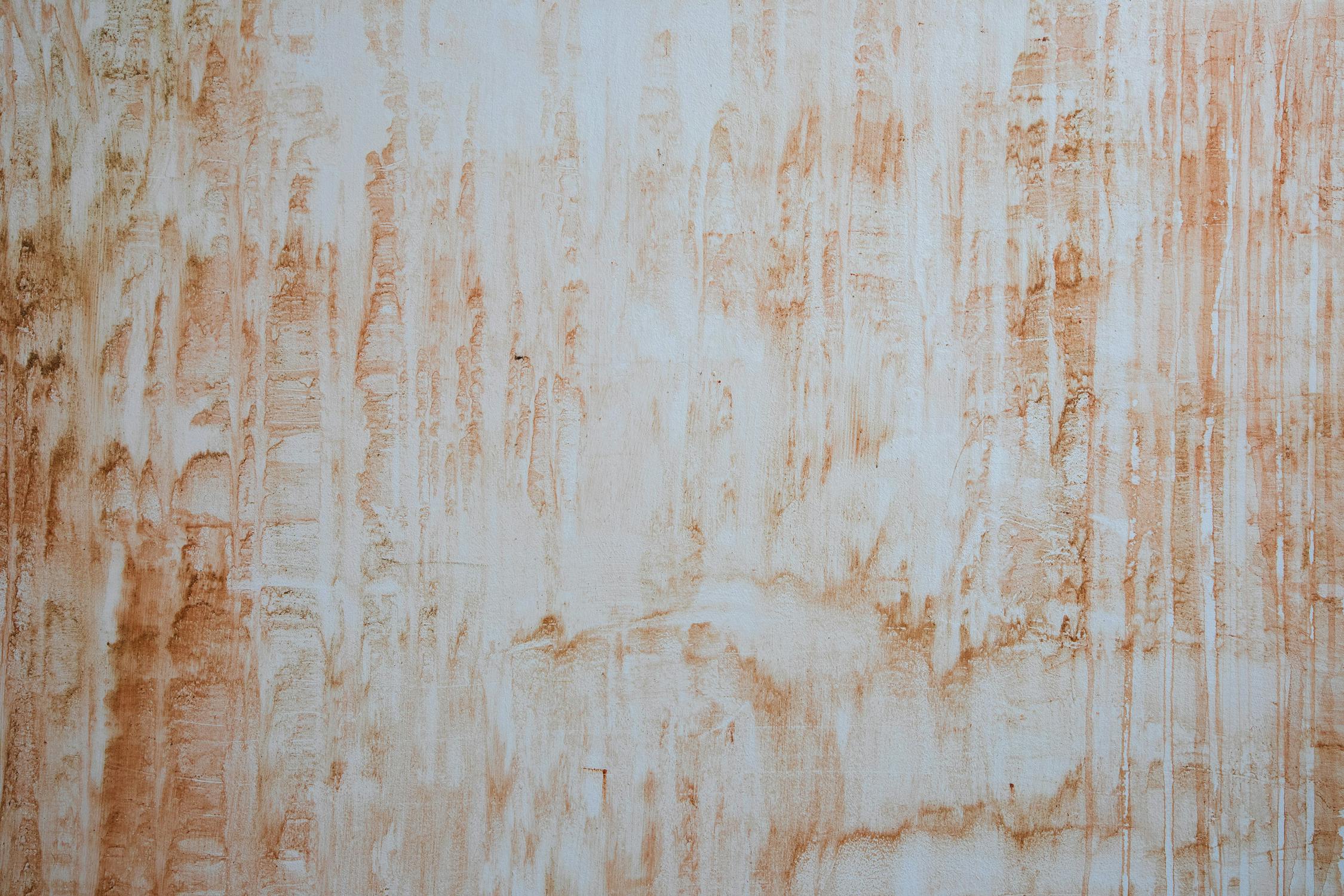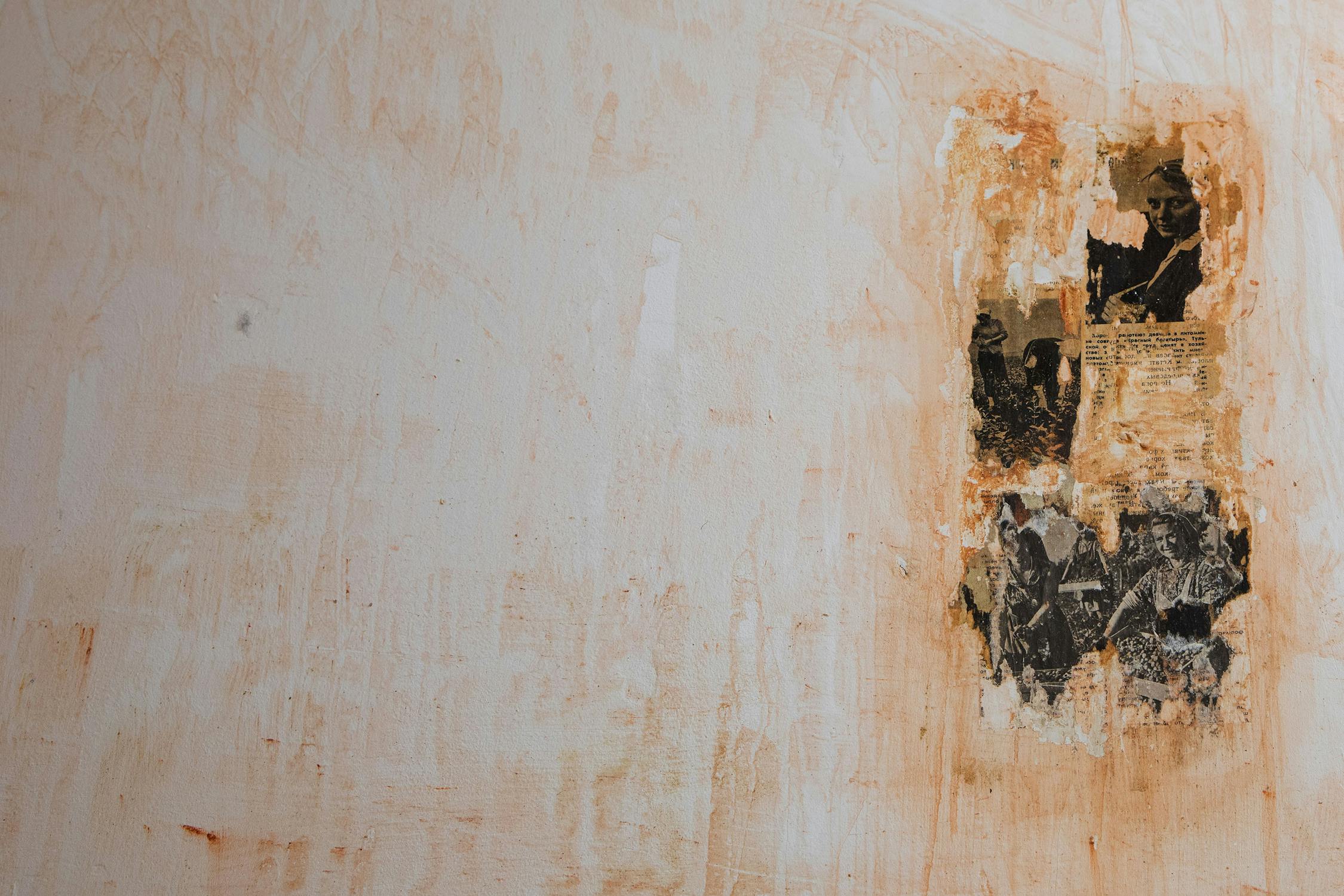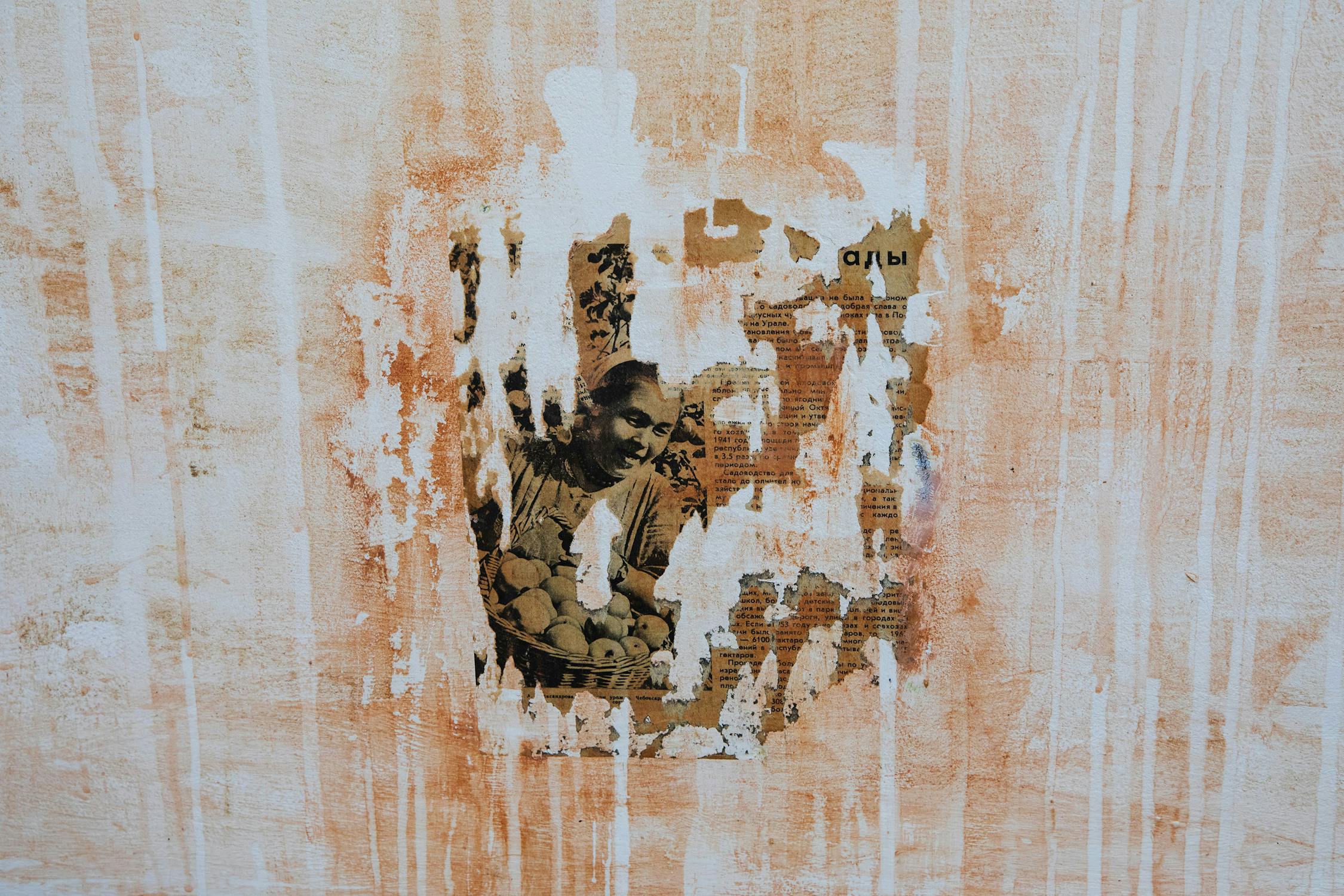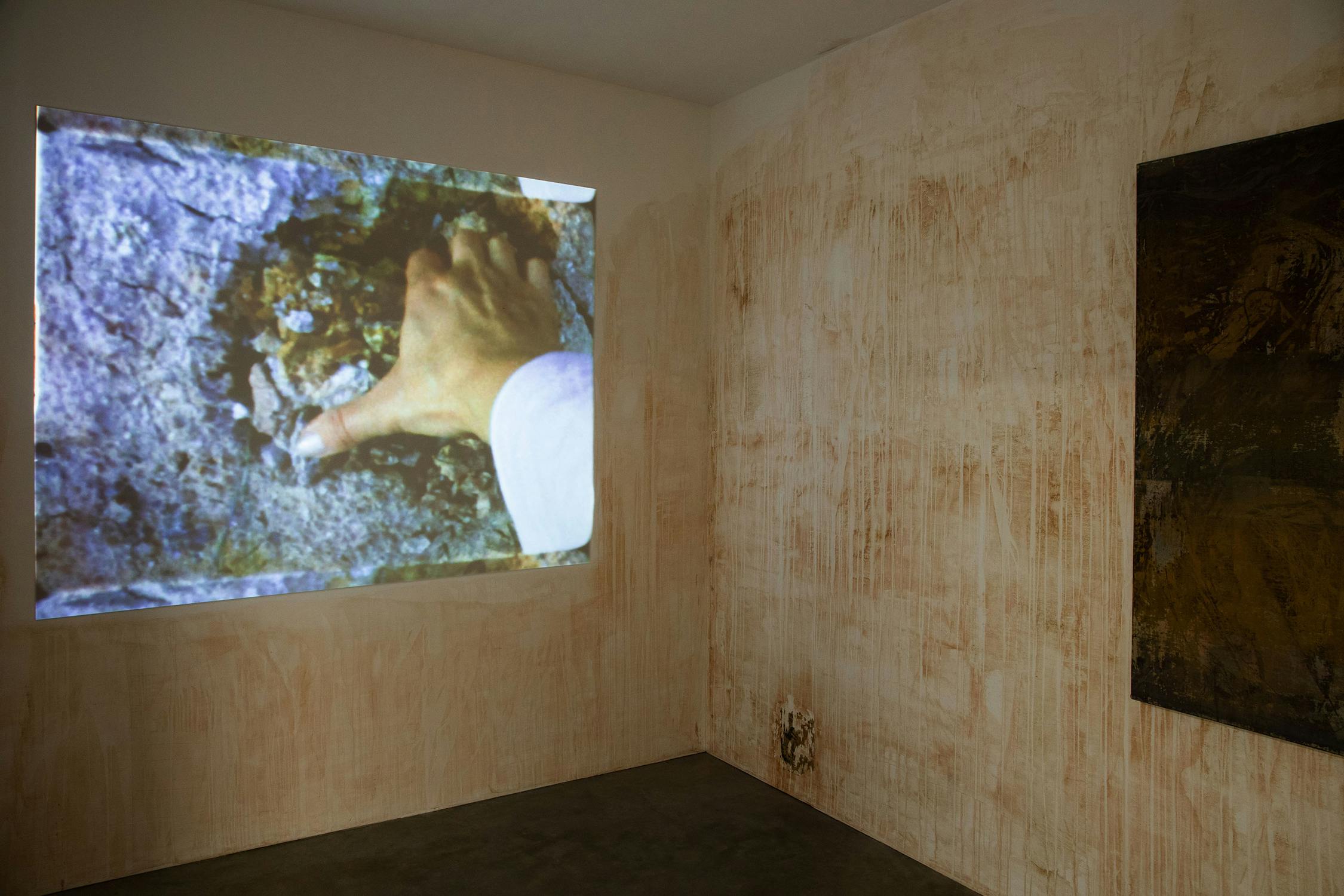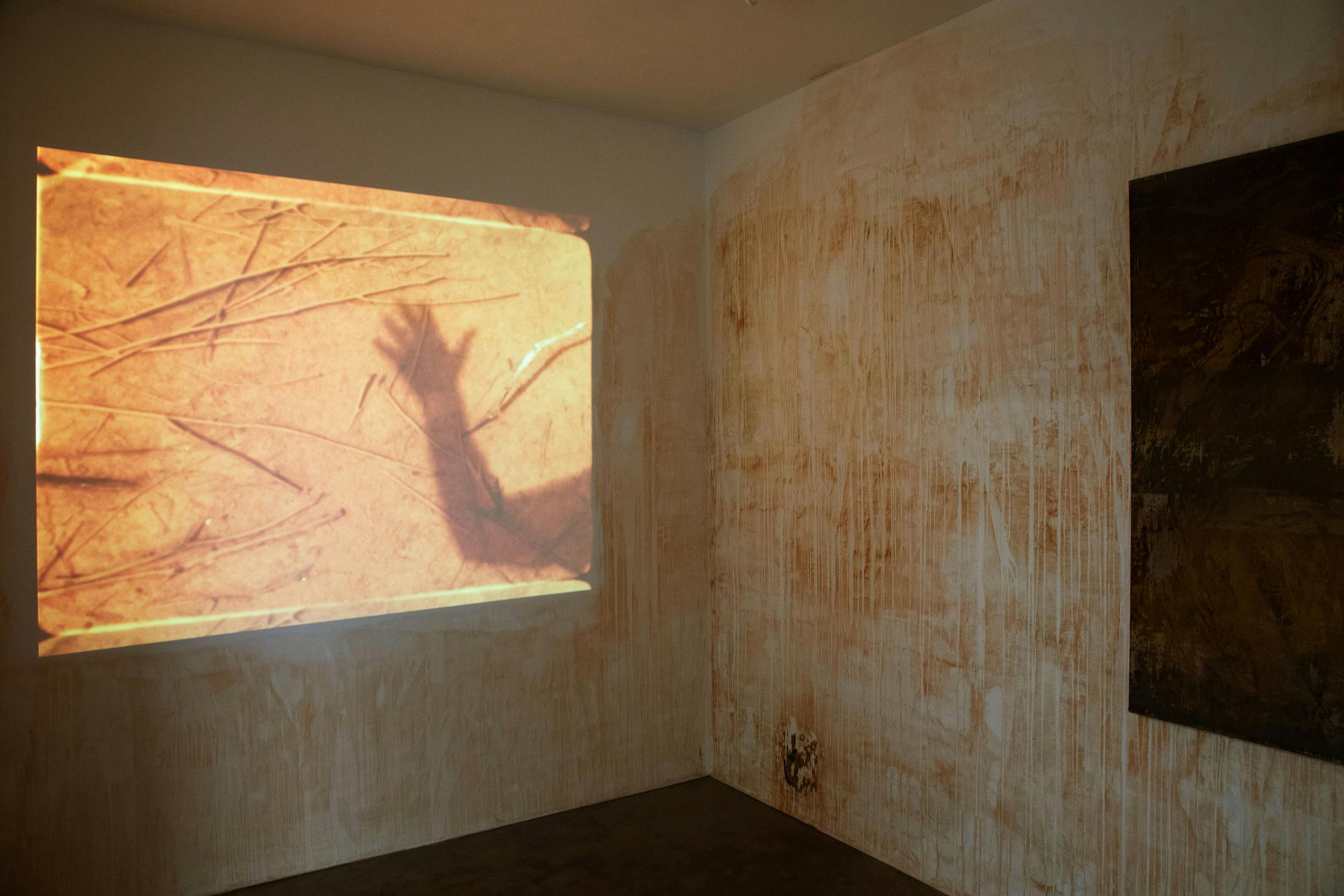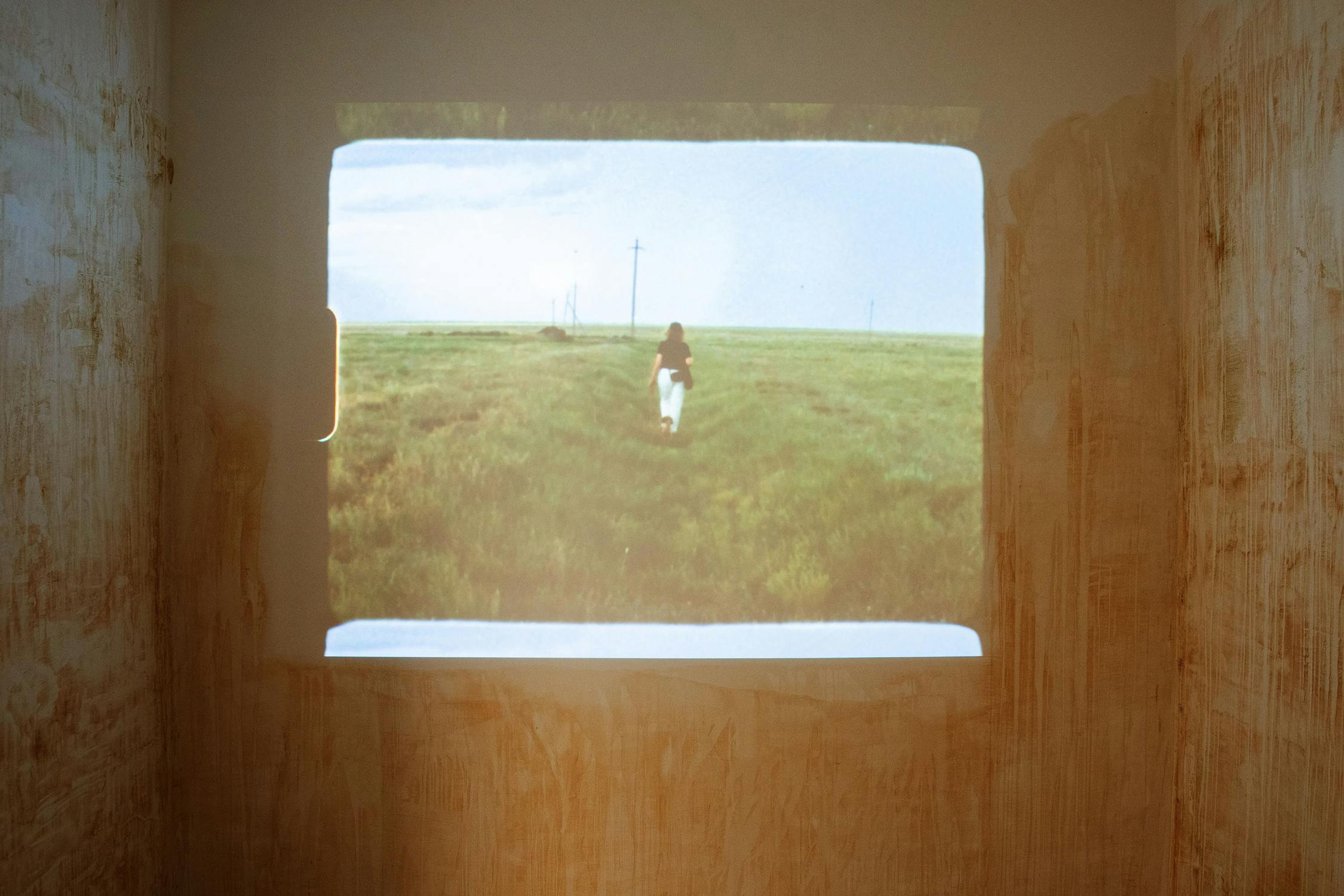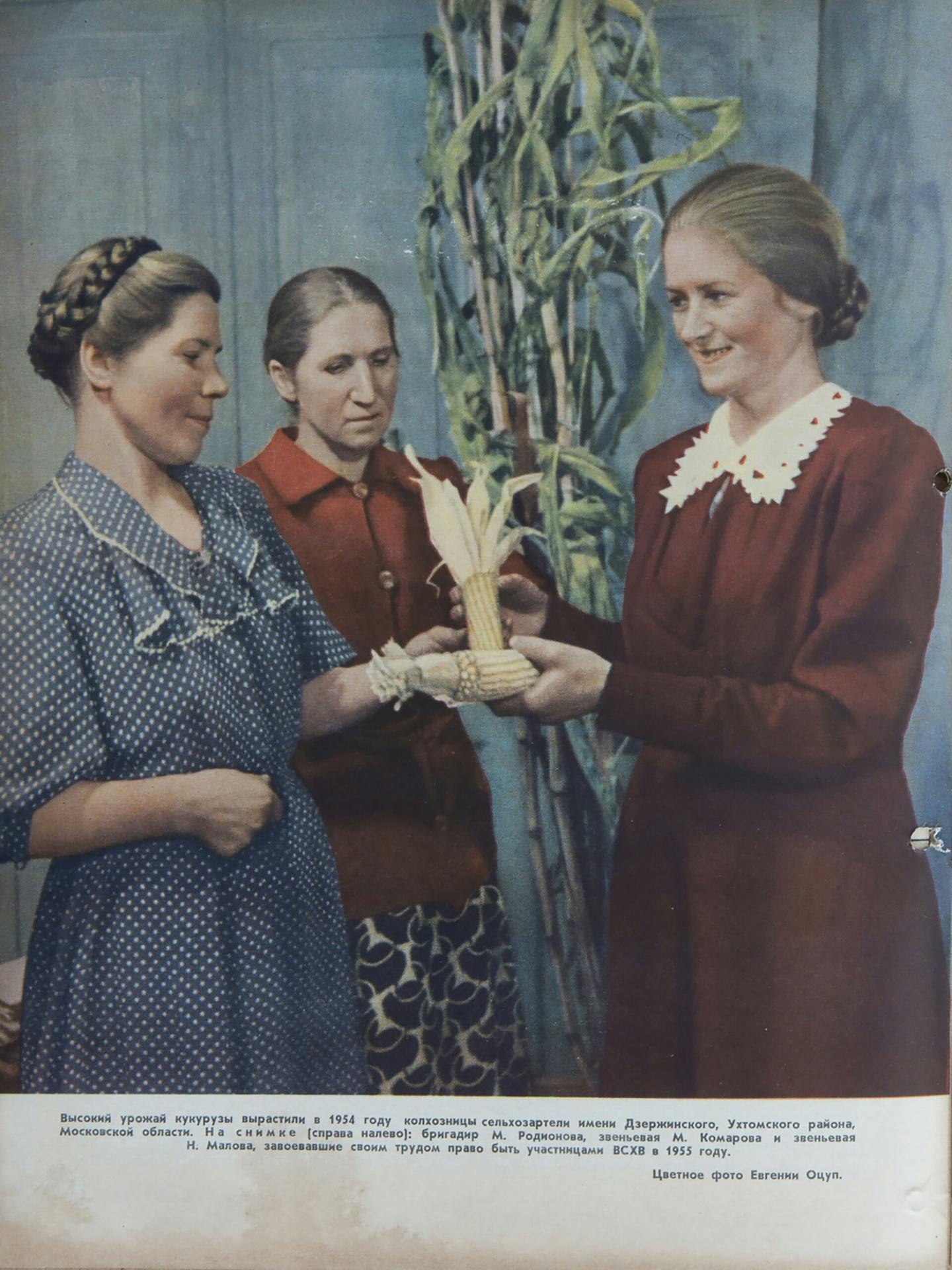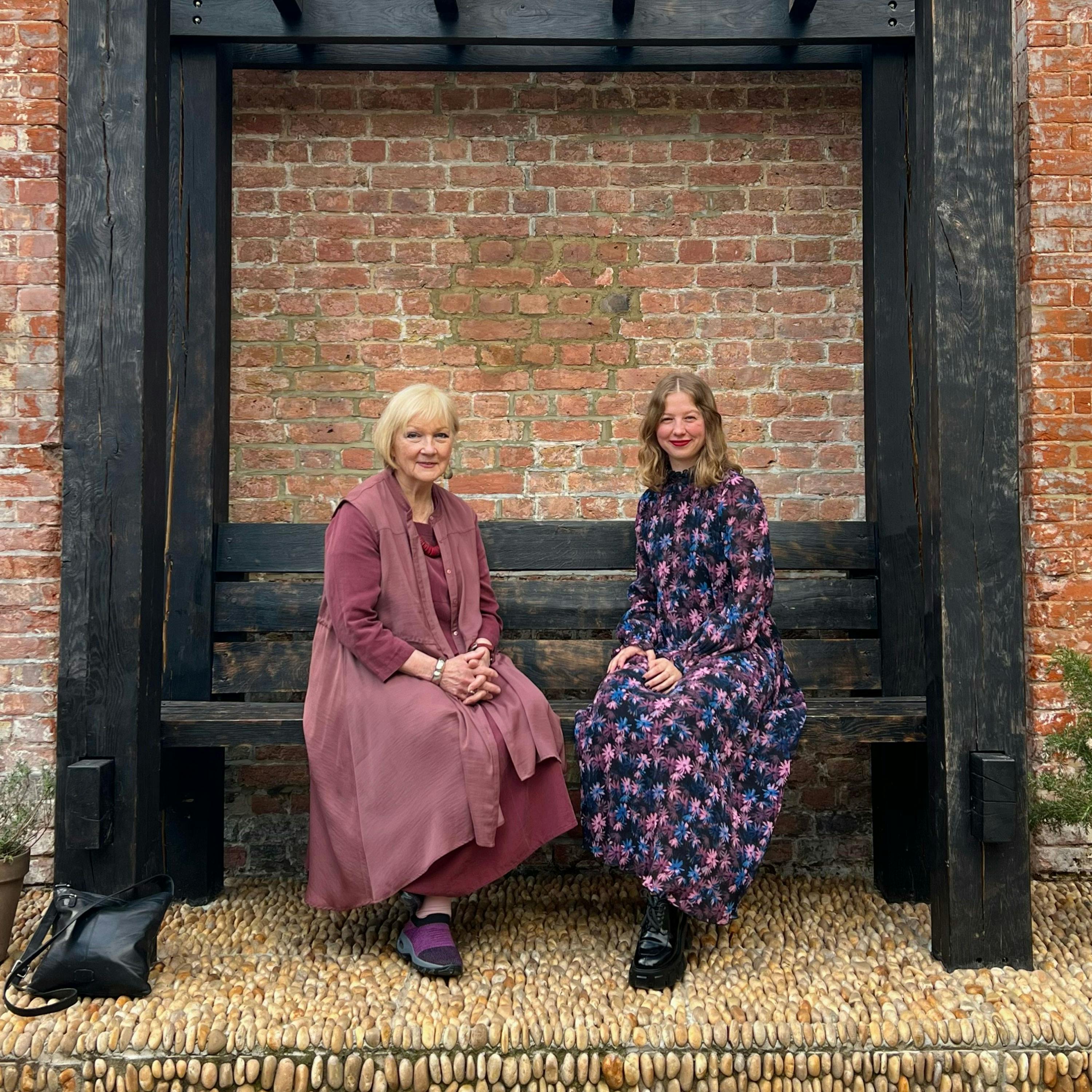This exhibition comprises new work produced as part of artist-in-residence Olga Grotova's ongoing practice-based research project, The Friendship Garden. This project explores the land cultivation practices of Soviet women and female resistance to the authoritarian state.
The Friendship Garden takes the history of the artist’s grandmothers’ garden in the Urals as a prompt to explore alternative economic systems based on friendship, cooperation, and care across diverse communities, diasporas and generations.
Through this marginalised female history, Grotova explores gardening as means of resistance to patriarchy and oppression and opens up public discussions about the consequences of Soviet and British colonialism, the body’s connection to the land and friendship as an alternative economic force. Whilst women and marginalised people still have to carve out spaces for themselves, gardens serve as a powerful tool to express oneself and thrive.
The project’s starting point is the history of ‘Friendship’, an allotment cooperative where Grotova’s great-grandmother, Klavdia, and her grandmother, Marina, had a plot for three decades from the 1960s, in the aftermath of their return from ALZHIR – an all-female gulag camp for ‘Wives of Traitors to the Motherland’.
In a little-known and under-documented episode in Soviet history, thousands of foreign nationals who had moved to Russia in the 1930s were rounded up and executed, a violent and tragic exercise in scapegoating that left grief and trauma in its wake. The wives and children of these 'Traitors to the Motherland' were taken to an all-female gulag in Kazakhstan, and Grotova's great-grandmother Klavdia and grandmother Marina were among those forcibly moved there.
Later on, after their return from the gulag, Klavdia and Marina, like many other women, made their own allotment, continuing the practice of cooperation and mutual help that had been their lifeline. The 'Friendship Garden' privileged the core human value of attachment and care. Their garden’s timeline ran parallel to the Cold War but existed outside official history, instead existing in sync with the lunar cycles, plants, and lives of the female gardeners. The garden became a site where the women’s trauma could be processed through engagement with the land and with each other.
Throughout Grotova's residency – October 2022 to July 2023 – the artist has explored multiple aspects of gardening with various communities of allotment tenants, horticulturists, artists and thinkers, with a particular focus on the East European community and the Caribbean diaspora. Together, these participants explore and intensively consider caring cultures and their implications for anti-extractivism, resistance and solidarity.
The installation frames Grotova's film, To my daughter I will say (2023), within a layered painted space that includes imprints of Grotova’s body, drawings, archival materials and gestures, bringing soil and plants found on research journeys into contact with the work’s complex narrative.

